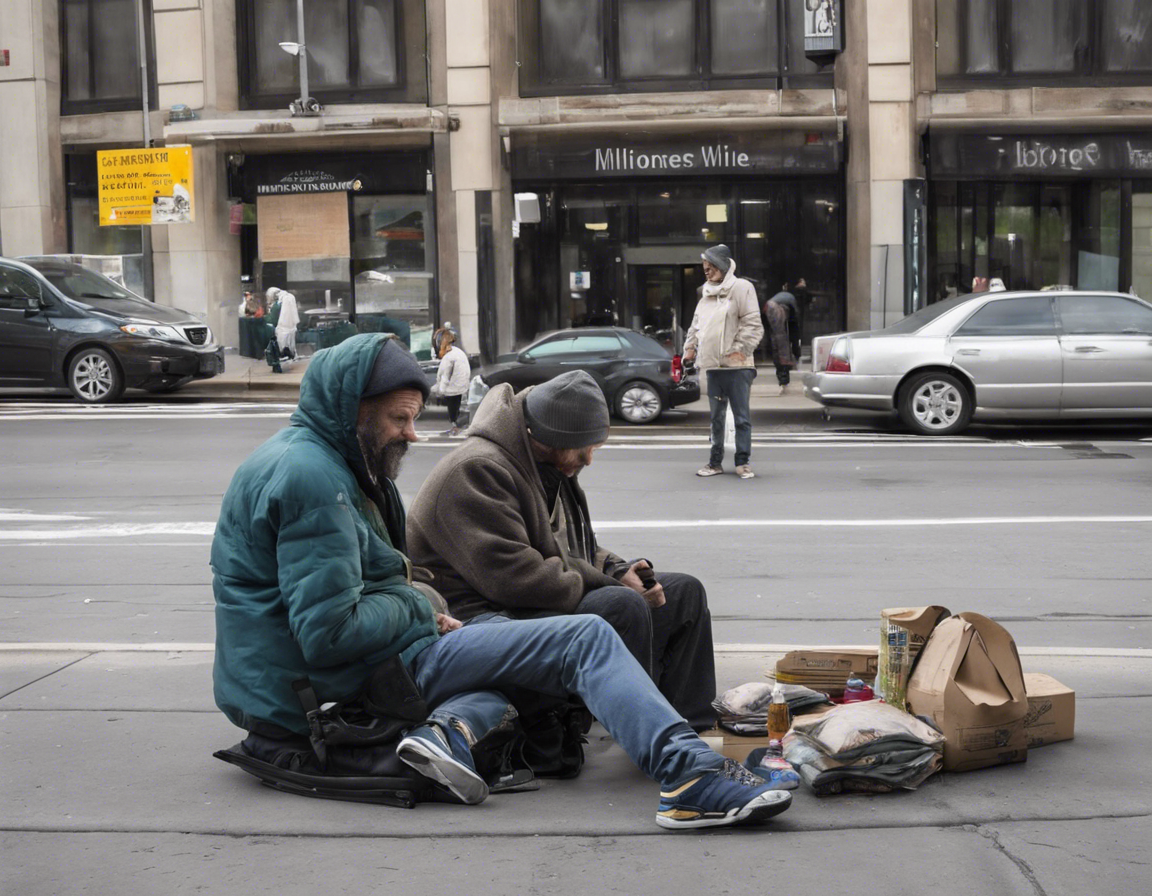Imagine a scenario where a person dressed in tattered clothes, with unkempt hair and a cardboard sign asking for help, is actually a millionaire in disguise. This is the premise of the “Millionaire Homeless Experiment,” a social experiment that delves into the stark contrast between wealth and poverty. The aim of this experiment is to shed light on society’s perceptions and treatment of the homeless population and challenge the notion that wealth is always visible.
Uncovering Societal Biases and Stereotypes
Stereotyping the Homeless: The homeless are often viewed through a lens of poverty, destitution, and helplessness. Society tends to overlook the diversity within this population and the underlying reasons for their circumstances.
Visibility of Wealth: Wealth is commonly associated with flashy cars, designer clothing, and luxurious homes. The idea that a millionaire could be hiding in plain sight among the homeless challenges these preconceived notions.
The Power of Perception
Judging a Book by Its Cover: The experiment highlights how quickly people judge others based on their appearance. The millionaire, despite having significant wealth, is often ignored or treated with disdain due to his outward presentation.
Empathy and Understanding: By revealing the true identity of the “homeless” individual, the experiment prompts reflection on our attitudes towards those less fortunate. It underscores the importance of empathy and kindness in our interactions with others.
Wealth Disparity and Social Inequality
The Wealth Gap: The stark contrast between the millionaire’s hidden wealth and his apparent poverty underscores the widening gap between the rich and the poor. This experiment brings to light the disparities in access to resources and opportunities.
Structural Inequities: The pervasive nature of systemic issues such as lack of affordable housing, healthcare, and education contribute to the cycles of poverty experienced by many individuals. The experiment serves as a catalyst for discussions on addressing these root causes.
Challenging Perspectives and Inspiring Change
Provoking Thought: The Millionaire Homeless Experiment challenges viewers to question their assumptions and biases about wealth and poverty. It encourages a deeper understanding of the complexities underlying societal issues.
Inspiring Action: By sparking conversations and raising awareness, this experiment has the potential to inspire individuals to take action in their communities. Whether through volunteering, donations, or advocacy, small steps can lead to meaningful change.
Frequently Asked Questions (FAQs)
1. What was the motivation behind the Millionaire Homeless Experiment?
The experiment aimed to challenge stereotypes about homelessness and wealth, prompting a reevaluation of societal perceptions.
2. How did people react upon learning the true identity of the “homeless” individual?
Reactions varied from shock and disbelief to introspection and empathy, highlighting the power of perception in shaping our interactions.
3. What lessons can be learned from this experiment?
The experiment underscores the importance of empathy, understanding, and a critical examination of societal biases in addressing issues of wealth disparity and poverty.
4. Has the experiment led to any tangible outcomes or changes in policies?
While direct policy changes may not be immediate, the experiment serves as a catalyst for raising awareness and fostering dialogue on issues of social inequality.
5. How can individuals contribute to addressing homelessness and wealth disparity in their communities?
Individuals can contribute by supporting local shelters, volunteering their time and resources, advocating for affordable housing initiatives, and challenging stereotypes through education and awareness.
Conclusion
The Millionaire Homeless Experiment serves as a powerful reminder of the complexities surrounding wealth and poverty. By challenging societal norms and exposing underlying biases, this experiment prompts us to reevaluate our perceptions and inspires action towards a more equitable and compassionate society. It is a call to look beyond appearances, cultivate empathy, and strive for positive change in our communities.
